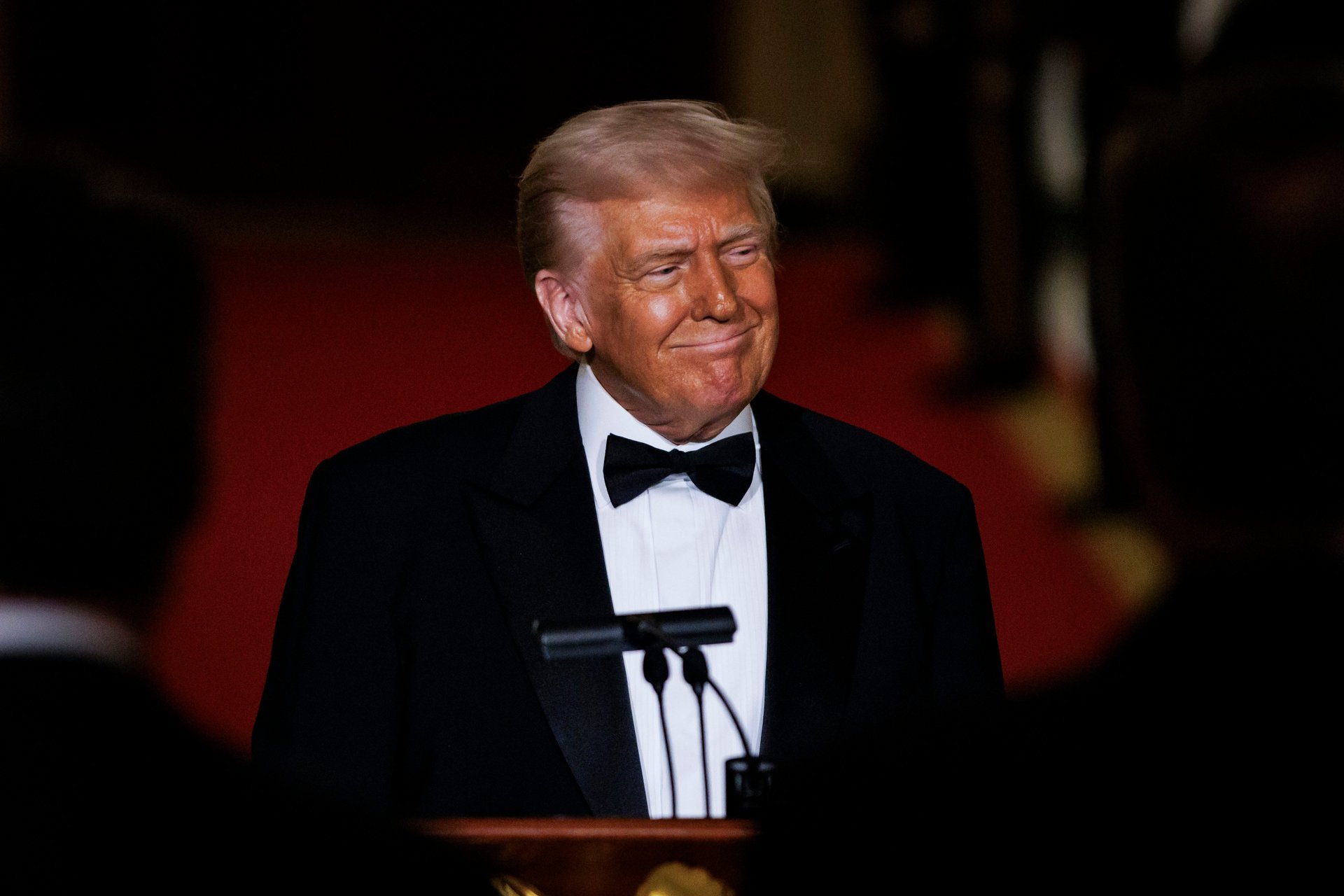Corporate America dusts off a familiar playbook for Trump
Apple, Microsoft, and other major corporations are largely sticking to old tricks from Trump's first term to curry favor and influence policy

President Donald Trump has adopted Silicon Valley’s mantra of “move fast and break things,” leaving uncertain companies grappling with a potentially expanding trade war, slews of executive orders, and no end of legal questions.
Suggested Reading
The second administration will “bring about a new era of American governance, with new rules, new norms, and risks” Frontline Government Relations CEO Michael Glassner, a top 2024 Trump campaign adviser, said as he launched his new lobbying firm in January.
Related Content
That already appears to be true. But major American companies are already largely sticking to old tricks from Trump’s first term to curry his favor — and influence his administration’s policy.
Executives at companies including General Motors (GM) and Ford Motor Co. (F) have traveled to Washington to meet with trade groups and Republicans in Congress, while Airbus (AIR) and others are lobbying to support programs they care about. Trump’s inaugural committee broke fundraising records as companies sought his attention.
More than half a dozen firms — from Facebook parent Meta (META) to Coinbase (COIN) — have hired Trump loyalists as consultants or for their boards, as some did during the president’s first term. And lobbyists with connections to Trump have gotten plenty of new clients, Bloomberg News reports.
But it was Apple CEO Tim Cook on Monday who showed why companies continue drawing from a well-worn playbook for a successful relationship with Trump.
Apple’s $500 billion plan
During Trump’s first term, Cook managed to balance developing a good relationship with the president, even as he criticized some of his positions. The CEO built his goodwill with the president through focused one-on-one phone calls and meetings, close relationships with Trump’s family, and a willingness to let things slide, according to the Wall Street Journal.
“Tim Cook calls Donald Trump directly,” Trump told reporters in 2019. “That’s why he’s a great executive because he calls me, and others don’t.”
After Trump issued the so-called “Muslim ban,” Apple (AAPL) joined a lawsuit opposing the action and Cook penned a memo criticizing the policy. But Trump continued to meet with Cook and mention him throughout his presidency, often labeling him a “great executive” and touting Apple’s investment plans, even if he got the details wrong.
That paid off in a big way in 2019 when Cook convinced Trump to give Apple an exemption from tariffs that impacted parts used in Mac Pro computers. After the exemption, Cook gifted Trump one of the first Mac Pros built at its new U.S. facility.
About six years later, Apple is staring down even more tariffs. Trump earlier this month slapped Chinese imports with 10% tariffs. Beijing retaliated with its own duties, as well as some actions against U.S. companies, including a potential investigation into Apple.
On Monday, a few days after meeting with Trump, Apple said it would invest $500 billion in the U.S. over the length of his term, with a focus on manufacturing. In a statement, Cook said Apple is bullish on American innovation.
Trump rushed to take credit, claiming that Apple wouldn’t invest even as little as 10 cents if it didn’t have faith in his administration. That may help Cook again secure Apple an exemption from Trump’s tariffs.
“We see this primarily as an attempt at earning a tariff exemption,” Morningstar analyst William Kerwin said over email, adding that “we think [Apple] is on the path to” earning another exemption from Trump’s tariffs, as it did in 2019.
Representatives for Apple did not immediately return a request for comment.
Apple’s stated investment — which Deepwater Asset Management estimates amounts to a roughly $20 billion increase in annual spending — is rivaled only by the $500 billion Stargate project backed by Microsoft (MSFT) and SoftBank, among others. Stargate, announced almost immediately after Trump took office, aims to develop infrastructure for OpenAI’s artificial intelligence over the next four years.
Both companies announced plans for facilities in Texas, a conservative-leaning state that has become home to a growing number of tech firms. Stargate’s data center campus was already being built ahead of the project’s unveiling at the White House.
Apple’s plans are similar to those announced during the prior two administrations. In January 2018, Apple said its “direct contribution to the U.S. economy” would be more than $350 billion over a five-year period, later “accelerating” its investments with a $430 billion commitment in early 2021, when Joe Biden was president.
Wedbush Securities analyst Dan Ives described Apple’s announcement Monday as a strategic move that lets the company diversity its manufacturing, while also playing into Trump’s theme of U.S. investment, pointing to Stargate. Both Trump and Biden focused heavily on U.S. manufacturing on the campaign trail and throughout their time in office.
And in both cases, Apple offered large numbers for local and federal officials to tout, even if some projects were later put on hold — such as Apple’s planned campus in North Carolina that never materialized. Such announcements also tend to include previous agreements that companies spend on, such as purchases from suppliers, rather than direct investments.
“[T]hese cumulative numbers can include a lot,” Kerwin said, “and shouldn’t be viewed as fully incremental to existing operations.”